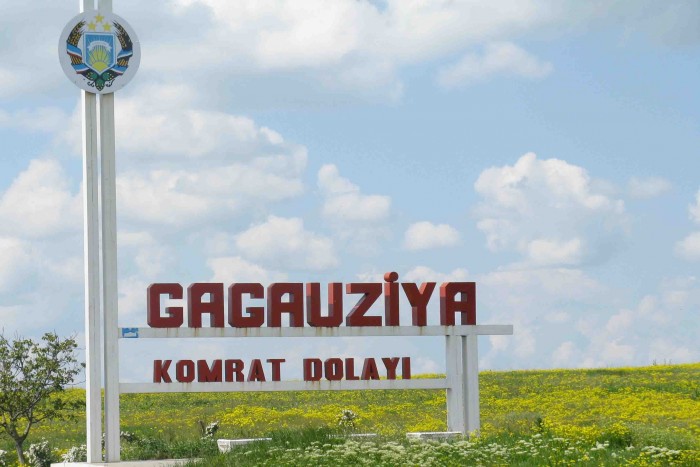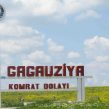
Improved Political Representation Can Strengthen Gagauz Allegiance to Moldovan State
Publication: Eurasia Daily Monitor Volume: 10 Issue: 138
By:

Moldova faces multiple Russian proxy operations to destabilize the country ahead of the European Union’s November 2013 Eastern Partnership Summit. Among such proxies, Gagauz radicals of 1990 vintage seek a more far-reaching level of Gagauz territorial autonomy, with hints at possible secession. Although marginal in local Gagauz politics, this group’s role seems to be to goad Chisinau into overreacting, which could in turn radicalize the incumbent Gagauz leadership (see accompanying article).
This move has taken Chisinau by surprise. Moldovan officials have begun to defuse the situation by talking to the elected Gagauz leaders. Dispelling misperceptions (of which there is a whole range) and clarifying each other’s concerns and priorities, would be the first step, before proceeding to a substantive discussion.
Prime Minister Iurie Leanca has reassured the Gagauz bashkan (the autonomous territory’s top executive official), Mihail Formuzal, that Chisinau has no intentions of breaching the 1994 organic law on Gagauz autonomy. Moldovan Parliament Chairman Igor Corman, only recently elected to that post, went to the Gagauz administrative center of Comrat for talks with the People’s Assembly (territorial legislature) and other officials from various Gagauz factions. Corman has invited Gagauz representatives to participate in Chisinau’s recently created ministerial working group on issues relevant to the Gagauz autonomy. Within the framework of that organic law, Corman solicited Gagauz proposals for discussion in the ministerial working group and in Parliament (tribuna.md, July 23; RFE/RL, July 24).
That invitation touches at least indirectly on a significant Gagauz concern, which involves representation in Moldova’s central political bodies. Further concerns include the ways and means of the autonomy’s budget, investments, more decent schooling in a seemingly intractable linguistic situation, and generally de-isolating this pocket of backwardness.
Those entirely rational concerns are sometimes overshadowed among the Gagauz by wholly irrational fears of Romania swallowing up the Republic of Moldova. That scenario is neither feasible nor contemplated, but Russian media propagate it effectively.
Under the terms of the 1994 law, the Gagauz Autonomous Territorial Unit is entitled to the option of “external self-determination” (i.e., secession) in the event that the Republic of Moldova “loses its independence and sovereignty” (code phrase for a merger with Romania). In this sense, Gagauz support for Moldova’s territorial integrity is conditional. When Gagauz leaders insist that they are “patriots of Moldova,” this means directly what it says, but it means indirectly that they oppose Romanian influence.
Political representation of the Gagauz at the central level in Chisinau has been discussed for some time inconclusively. The bashkan is a member ex-officio of Moldova’s government, ranked as a minister. Formuzal, elected as bashkan in 2006 and re-elected in 2010, is the first incumbent to have taken the oath of office in the “state language” (“Moldovan”/Romanian). Appointing qualified Gagauz to several deputy ministers’ posts, in ministries directly relevant to that territory’s development, could help strengthen Comrat’s otherwise precarious links with Chisinau.
The Gagauz do not have the possibility of corporate representation in the parliament. Moldova’s legislation does not allow ethnically-based political parties, and the electoral system involves party lists competing on a country-wide basis, the entire Moldova forming one single electoral district. The Gagauz are too few in number to accede to the legislature, except as individual candidates picked by one of the larger parties. A glance at the current parliament’s roster of deputies would show three or four ethnic Gagauz deputies, each representing a different party, none mandated to represent the territorial autonomy’s interests (https://www.parlament.md/StructuraParlamentului/Deputies/tabid/87/Default.aspx). Allocating a few parliamentary seats ex-officio for the autonomy’s representatives could bring Comrat politically closer to Chisinau.
Moldova’s Communist Party has carried big majorities of the Gagauz vote in all parliamentary elections held thus far. However, the elections to the territorial legislature (Gagauz People’s Assembly) and to the post of bashkan went in a different direction. Formuzal and his political organization, United Gagauzia (which may only operate in this territory), defeated the Communists in the 2006 and 2010 bashkan elections. In September 2012, the Communists lost the Gagauz People’s Assembly elections when unaffiliated candidates won most of the 35 seats. Barely one month later (October 2012), one half of those elected as independents announced that they were collectively joining the Chisinau-based Democratic Party, led officially by the Moldovan Parliament’s chairman (2005-2013) Marian Lupu and de facto by the tycoon Vlad Plahotniuc.
That switch in Comrat looked like a trademark Plahotniuc poaching operation, complete with the election of Dumitru Constantinov as People’s Assembly chairman. This should give the Democratic Party (a component of the governing coalition in Chisinau) an unmatched degree of political influence in the Gagauz territory. In the meantime, Igor Corman from the same Democratic Party has taken over the Moldovan Parliament’s chair, and seems well placed to institutionalize the communication channel he has just opened with Comrat (see above).




